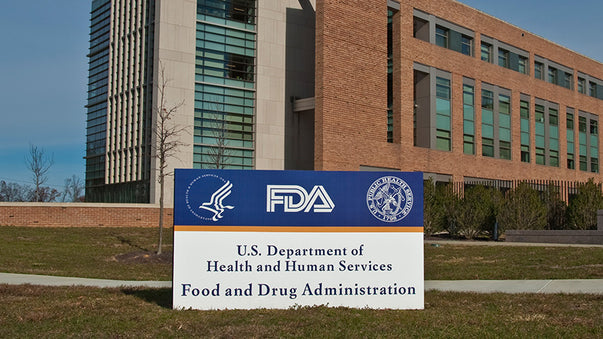Interview with Dr. Jordan Roberts, Thrivous Science Advisor

Continuing our series of interviews with Thrivous Science Advisors, we present this interview with Dr. Jordan Roberts, a physician with a medical degree from the University of Arizona, who currently works in family medicine at St. Mark's Hospital in Salt Lake City.
Could you briefly introduce yourself and your personal and scientific background?
I am a resident family medicine physician at St. Mark’s Hospital in Salt Lake City. I received a Bachelor’s of Science in Life Sciences from Arizona State University in 2011, and a Doctor of Medicine from the University of Arizona College of Medicine - Phoenix in 2015. I have done scientific research on Calcium homeostasis in S. cerevisiae as an undergraduate and a clinical thesis on vitamin D levels in inmates of the Maricopa County Jail as a medical student. My research aims as a physician have centered on improving access and overcoming barriers to evidence-based preventive health services, with a particular interest in adolescents. I am married and have two young children.
How did you become interested in nootropics and a Thrivous scientific advisor?
Lincoln Cannon approached me directly asking if I would be willing to consider joining his scientific advisory board. At first, I was skeptical and felt myself a poor fit for the position (I had recently published a piece, wherein I expressed my doubts about the effectiveness of mixed supplementation for significant biological and cognitive enhancement); however, after seeing multiple good quality studies, and the method in which Lincoln would compile this data to guide his therapeutic inclusion criteria for different active ingredients, I decided that I felt comfortable adding my voice to that of other scientists on the board to provide critical analysis and feedback on new ideas and products from Thrivous.
I understand that you have recommended Clarity to some of your patients. Could you share some feedback from your patients?
I have recommended Clarity (and provided samples) to several of my patients who suffer from Adult Attention Deficit Disorder as an adjunct to traditional stimulant therapy. Their initial reactions have been mild, but positive and they have so far reported no adverse reactions.
To whom would you recommend Thrivous' nootropics?
I would recommend them to those who have a subclinical deficit in their ability to concentrate, or who express difficulty with memory that does not significantly affect their instrumental activities of daily living. I would also recommend nootropics to those who have a diagnosis of ADD or memory loss but who are stable on medical therapy and/or cognitive-behavioral therapy, and have regular follow up with a medical provider. Enhancement, for practical intents and purposes, currently lies beyond the scope of traditional medicine. I do not routinely recommend therapy to asymptomatic and “normally functioning” patients, but I do not discourage it, either, as long as they understand the potential risks and benefits.
What is the regulatory status of nootropics, and what's the FDA's position? Where is the line between unregulated and regulated?
Natural nootropics, such as those found in Clarity, fall into the category of food supplements in the eyes of the FDA, and manufacturers are not required to provide proof of safety or efficacy (via clinical trials) before they are made available to the general public for sale and consumption. There is minimal effort in the biomedical/pharmaceutical community to derive the “active ingredients” of the various, known natural nootropics to create patentable synthetic compounds to test and bring to market via the traditional drug development process, which is lengthy and expensive (costing up to one billion dollars per drug).
Natural nootropics do not require a doctor’s prescription or routine monitoring. Traditional regulatory agencies do not require strict pre-market manufacturing standards and testing, and so it is often difficult or impossible to know with certainty about the quality and quantity of the product one may purchase online or at a health food store. The industry is largely “self-regulated” at this time, and with any industry left to its own devices there are good and bad actors.
I have good reason to believe that Thrivous, under the direction of Lincoln Cannon, is an honest and trustworthy supplier of high-quality and rigorously controlled natural nootropics. I do not claim any empirical knowledge about their effectiveness on their stated uses, other than the few anecdotal reports I have received from my patients and friends who use the product and the objective data in the medical literature.
Lincoln has compiled an impressive database of primary research studies on each of the components in Clarity and other labels from Thrivous, and has developed a weighted system to measure the effect of each component. A meta-analysis (a powerful method of combining data from primary studies to measure average effect size) published in the British Journal of Clinical Pharmacology in 2012, demonstrated a large and statistically significant, positive effect on delayed word recall for Bacopa monnieri (one of the primary ingredients in Clarity), an effect which is at least non-inferior to modafinil -- the only FDA approved nootropic and a scheduled/controlled substance registered with the DEA (Br J Clin Pharmacol. 2013 Mar;75(3):728-37. doi: 10.1111/bcp.12002).

What are the most exciting advances in today's biomedical research?
There are so very many! The rate at which new drugs are coming to market and the re-purposing of old, “orphan” drugs for new applications is staggering. It is important to remember, though, that the modern pharmacopeia only targets a small fraction (less than 1%) of the theorized sum-total of biochemical pathways in the human organism. Without a revolution in the way drugs are discovered and produced, this is not likely to increase exponentially as will be the case with many other technological applications. There are, however, other avenues of intervention, such as gene therapy, which could represent a new chapter in the grand story of medicine, a story which has lately been largely confined to the modern paradigm born during the age of vaccines and antibiotics in the prevention and treatment of infectious diseases.
Is CRISPR-Cas9 hype or hope?
CRISPR-Cas9 is the most precise, effective and potentially revolutionary suite of gene-editing technologies the world has yet seen. Had it not been for the Nobel Prize’s “rule of three,” the 5 co-discoverers would have certainly been the recipients of the prize for chemistry. There is currently a tenuous, self-imposed moratorium on human germ-line editing by the wider scientific community, with several notable exceptions (in the last month a lab in Oregon followed the example of several labs in China who have forged ahead with gene-editing in human embryonic stem cells), but several large studies for targeted tissue interventions in various disease states (e.g. HIV) are underway in the United States and Europe using this technology, and countless others have been proposed. Time will tell (and soon) whether these technologies offer safe and effective means of therapy to those who suffer from genetic diseases or disease states where genetic interactions play a significant role (which is most disease states).
What's your position on the science and bioethics of human enhancement, and the prospects to re-engineer humans?
Speaking personally, as a scientist, a humanist, a student of history and a man of Jewish inheritance, I am cautiously optimistic about the potential of ethical, informed, voluntary and medically supervised human enhancement. I believe each of these elements (and probably others) are necessary to avoid the pitfalls of negative eugenics, genocide and widespread discrimination and prejudice which have plagued our past and been presciently foretold by modern philosophers, clerics and authors in the darkest visions of our future.
I believe there is a positive feedback loop in place which, barring existential catastrophe, will eventually lead human beings to learn to read and (re-)write their “source code,” and that of other life. This will lead to a great diversification of life forms, but also great threats to the homeostasis that slow evolutionary forces have shaped over millions-billions of years, and so these experiments should be approached with the greatest humility and respect for the wisdom of the natural world. I feel that the future will need new bodies of governance, methods of massive informed consent and protections for life that does not have a voice in order to ethically enact such changes to this biosphere, and other new biospheres.
Do you consider yourself a transhumanist? By the way, what does that mean?
A transhumanist is a person who embraces the ethical and voluntary application of chemical, mechanical, digital and other technological enhancements to reduce human suffering, improve person-centered and culturally valued abilities, the creation and preservation of desired cognitive states, the extension of biological human lifespan and the adoption of brain-computer interfaces with the explicit goal of conscious immortality. The implicit end of such a transitional form is the post-human, and transhumanists hope to imbue the post-human progeny of humankind with our best attributes and the greatest chance of long-term survival and flourishing. I do consider myself a transhumanist.
More Articles
Read more articles at Thrivous, the human enhancement company. You can browse recent articles in Thrivous Views. See other Science Advisor Board articles. Or check out an article below.
-
FDA Approves First Gene Therapy
"We’re entering a new frontier in medical innovation with the ability to reprogram a patient’s own cells to attack a ...
-
A Whole Planet of Human Enhancement Advances
Besides the last, all news summaries below cover biomedical research done outside the US. Some will choose to interpret this ...


